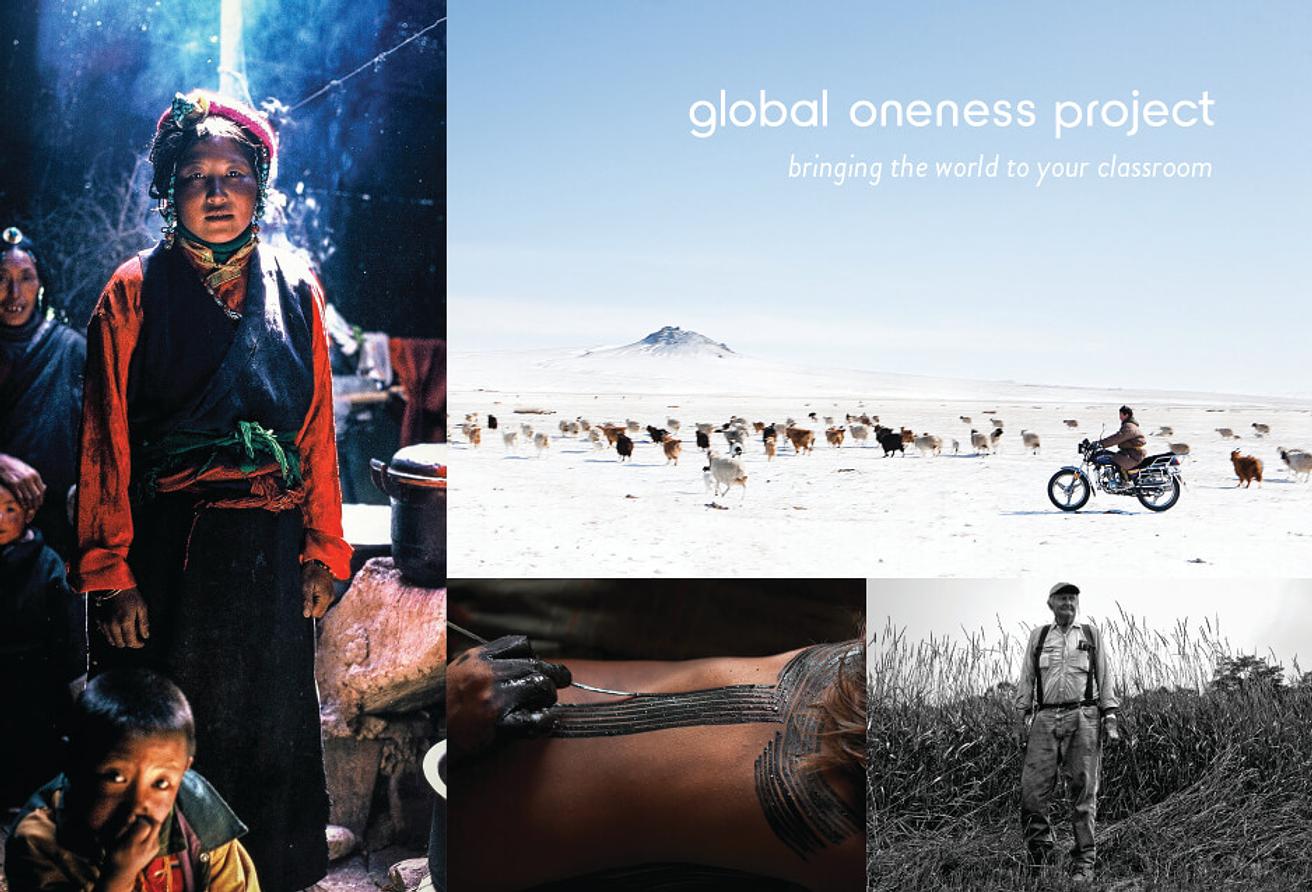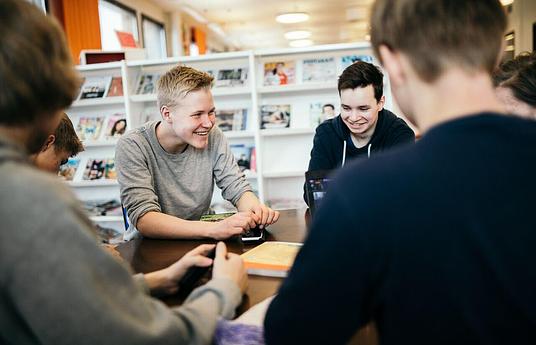We are living in the golden-age of documentaries. A wealth of cinematic factual films are now at our fingertips, awaiting us online. So why are these beautiful documentaries limited to our Netflix accounts or television subscriptions, and not in the classroom? Documentaries are a fantastically engaging way to bring real-world stories to life and can offer a breadth of educational value to schools. It seems a missed opportunity to not make use of new technologies and storytelling techniques to invigorate school lessons.
Of course the answer to this problem would come from California, a location known for its storytelling. The Global Oneness Project is a California-based initiative that creates beautiful media materials which are specifically created for educational purposes.
The films, photo-essays and articles tackle the biggest cultural, social and environmental issues of our time. Many of the materials are accompanied with learning plans that teachers can shape their lessons with to enrich the learning experience, and to broaden the experiences of their students.
These aren’t just any documentaries, they’re created by award-winning filmmakers and the team at Global Oneness Project have worked directly with teachers in order to develop their work for the classroom. Cleary Vaughan-Lee, Executive Director, is keen to make sure the media they create and share with teachers is authentic and actually serves to enhance the classroom experience.
One particularly relevant example Vaughan-Lee told us about included a documentary they made featuring Mohammed Alsaleh, a Syrian refugee who has now settled in Canada. After watching the documentary in class, students were challenged to create a Public Service Announcement (PSA) to share with their school on the positive aspects of the religion and history of Islam. They created presentations to help raise awareness of the situation of many refugees and to encourage people to open their hearts and neighborhoods to those coming from different cultural and religious backgrounds.
In a world where some media outlets, and even certain presidents, peddle hate-speech and sensationalism, this personal element to the stories humanizes the issues our world is currently facing.
Stories are powerful things, and when harnessed properly they have the potential to share healthy, empathetic attitudes – the kinds of qualities we’d certainly like the next generation to embody! Stories are also universal. They speak to each and every one of us, so the potential to use them in education is too great a thing to ignore, as Vaughan-Lee told us, ‘The power of stories are the foundation for learning. They can draw us into our basic human elements through our universality. To love, create and engage and learn those things are reflected in all of our stories and that’s why I think it’s so effective. They highlight cultures and transcend boundaries across the world.’
Global Oneness Project works with filmmakers, photographers and journalists all over the world, which means they can report on real events as they are happening. For instance, one of their photojournalists is based in Nepal so they were able to document and write about the devastating earthquakes suffered by the country in real-time. This adds another dimension to making the materials accessible to teachers, keeping education up-to-date with the latest global events.
Whilst originally focused on being for college or high school students, the appeal is wide throughout the whole of education so the team are working on making more content suitable for elementary education too. The resources themselves can be adapted for different age groups by using them in differing ways and any teacher can come to it and decide what is right for their class stage.
The whole project is teachers-first and aims to empower teachers to feel they can lead the change in education from the ground-up. ‘We all know stories move us. When I talk with teachers it's really important for the teachers themselves to be inspired and motivated by what they are taking in and that in turn will motivate their students. I think that’s where the real magic is. I also think that, in this critical time in history, we need to share stories of different cultures around the world,’ explained Vaughan-Lee.
The power of stories are the foundation for learning. They can draw us into our basic human elements through our universality.
"
Providing high-quality materials for teachers to use isn’t just a nod to their worth, but also an empowering experience. We too often forget that teachers need to feel inspired and motivated too, not just the students, and in fact this is probably the best way to motivate students too.
To make sure that once the students are inspired they can actualize their passion into real-life learning, Global Oneness is creating phenomenon-based-learning projects so that students can document their own cultures and share their way of life with others too. They can do this through film, photography, and articles.
To ensure the materials are pedagogically informed, the team use the Bloom’s Taxonomy approach – with an aim to inspire higher levels of thinking, not just rote repetition of facts. There is no doubt, once you view the documentaries and witness the expert storytelling of the Global Oneness Project, that these films are made to create critical thinkers and motivate them to actively challenge the stories they experience elsewhere in the media world.
Best of all, their resources are free (and they intend to keep them that way!) Clever, inspiring and educational stories that broaden the minds of our young people can be incorporated into the classroom right now – changing education from the ground-up today.




